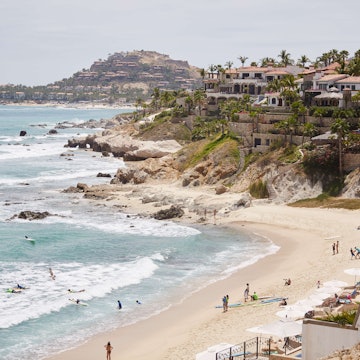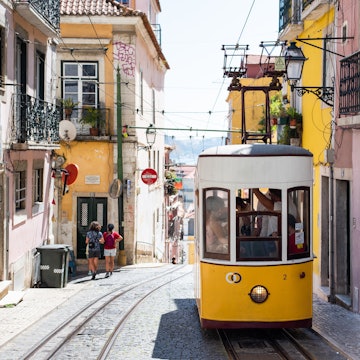
Sick of snapshots that are just a bit, well, ordinary? In this extract taken from Lonely Planet's Guide to Travel Photography by Richard I'Anson, he shares his tips for capturing the wow factor when you take photos of the folks you meet.
Photographs of people can be simply categorised into two groups: portraits and environmental portraits. Portraits are close-up studies of a subject's face. Environmental portraits include the subject's surroundings as an integral part of the image, providing a context for the portrait.
Taking portraits
Capturing close-ups of people is a challenging and sometimes daunting proposition, but if done successfully it will add a great deal of depth, interest and personal satisfaction to your travel pictures.
Concentrate on filling the frame with your subject and you'll be rewarded with a stronger image. Avoid backgrounds that are too busy or have very light or very dark patches of colour. Your eyes should not be distracted from the subject's face. Always focus on the eyes. It doesn't matter if other features are out of focus: if the eyes aren't sharp the image will fail.
Environmental portraits
Environmental portraits add context and allow the viewer to learn something about the person. This kind of portrait lends itself to the use of wide-angle lenses. This is important because the location is an integral part of the picture. Get close so that nothing comes between the camera and the subject. This technique is great for crowded situations such as markets and busy streets.
Groups
People gather in groups large and small for all sorts of reasons: to wait for a bus, watch a street performance, make a purchase at a market stall, even just to stand around and watch the foreigner take photos. Unlike the formal groups we like to pose at home, groups encountered on the road are best treated as informal; photograph them how you find them. The larger the group the less chance you have of getting a shot where everyone looks good, so take as many frames as you can. When you've taken the group shot consider moving, or zooming in on, individuals for portrait shots.
Children
Many people feel more comfortable taking pictures of children than adults. They're usually very enthusiastic about being photographed and will often give you the time to take several frames.
A great way to break the ice with children, and to give them something in return, is to let them look through the viewfinder. This is especially exciting for them if you have a telephoto lens on. It's a good idea, if you can, to turn the camera off – some children are very quick to figure out how to press the shutter! If you're shooting digitally, showing them the result on the LCD screen is even better.
Travel Companions
Treat taking pictures of your friends and family as seriously as the other people pictures you take. A great way to get good shots of your companions on the road is to look out for situations where they are interacting with the locals or are occupied with something of interest. This will create much more rewarding shots than by getting them to look at the camera. Look for instances where your friends are bargaining for a souvenir, loading packs on the bus roof or looking at temple statues. Your photos will capture the travel experience in an active rather than passive way.
Other things to consider
You'll become more comfortable photographing people, and enjoy better results, if you're able to compose and make technical decisions quickly.
Some photographers ask before shooting, others don't. Asking permission allows you to use the ideal lens, get close enough to fill the frame, provides the opportunity to take several shots, as well as to communicate with your subject if necessary.
How you approach people will affect the outcome of your request for a photo. Simply smiling and holding your camera up is usually sufficient to get your intention across. Approach the person with confidence and shoot quickly.
In popular destinations you could be asked for money in return for taking a photo. This may be considered a fair and reasonable exchange, but it can become tiresome and discourage you from photographing people. Agree on the price beforehand to avoid problems afterwards (and make sure you're working in their economy, not yours). Always have coins and small denomination notes in an easily accessible pocket.
People often ask you to send them a photo. If you take people's names and addresses with the promise of sending a photo, make sure you do. If you don't, it makes it harder for the next traveller, and gives tourists a bad name.
Has this got your shutterbug buzzing? Check out the rest of our travel photography guides.






















